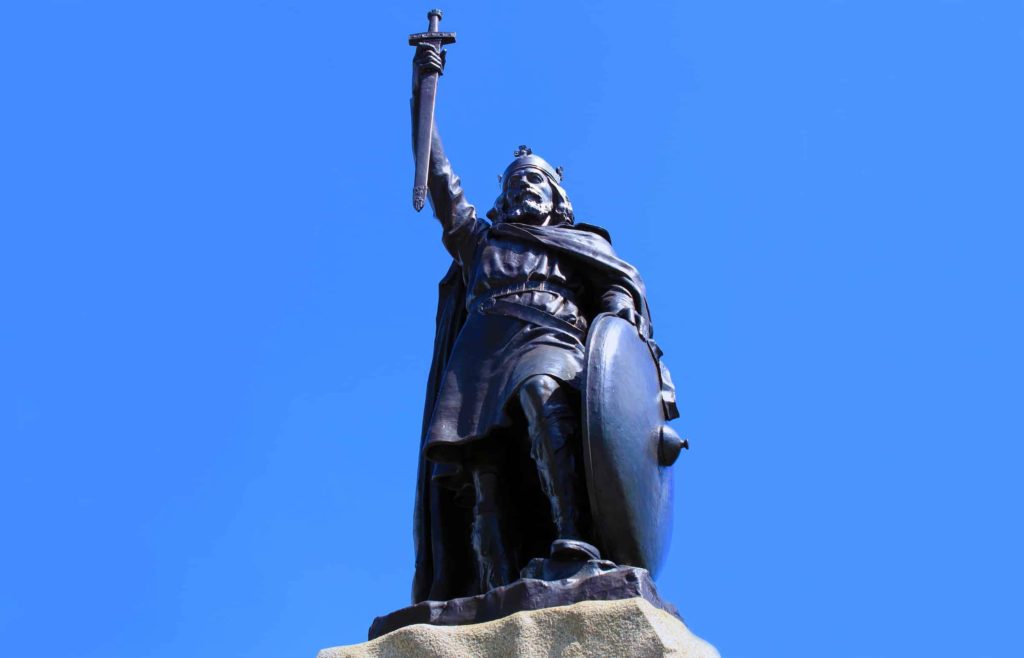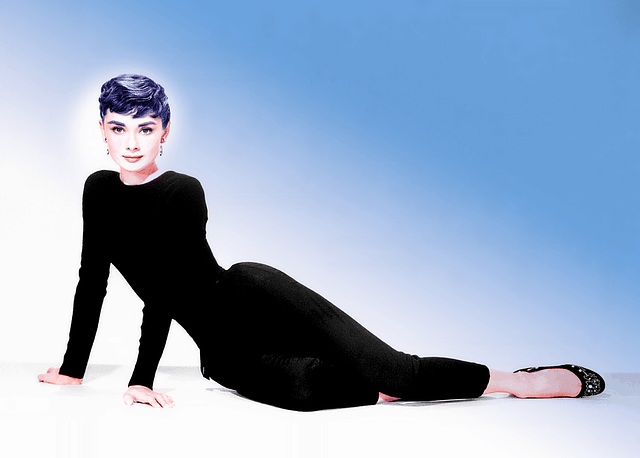The Ultimate Guide:
What is Received Pronunciation (2021)
- British Accent Course
If you’re talking about British English accents, you might hear the term ‘Received Pronunciation’ (or ‘RP’).
Other terms such as ‘Standard British English’, ‘The Queen’s English’, ‘BBC English’, ‘RADA Accent’, or even ‘Posh Accent’ may come up too. But what exactly do these terms mean? And are they describing the same thing?
In this article, we’ll look at what is received pronunciation (or ‘RP’) and the history of the modern standard British English accent.
We’ll also look at why it can be a key to success in life.
What is Received Pronunciation (RP)?
Well, the first myth to bust is that it is a single accent.
Jonnie Robinson is an expert on spoken English at the ‘British Library’.
He divides Received Pronunciation (RP) into three categories.

Conservative RP
This is the old-fashioned ‘posh’ accent. It is now only used by Queen Elisabeth II and elderly aristocrats.
BBC broadcasters in the mid-20th Century also spoke this way.
Very few other people speak like this these days.
We call it ‘conservative’ because it’s used by traditionalist speakers. It’s about politics. When people talk about ‘The Queen’s English’, they mean this accent.
Modern (Mainstream) RP
This is a more modern version.
It gives us less of a clue about the person’s social class, profession, or age.
Later in this article, we’ll talk about the changes which this particular version of RP had to undergo to stay in line with the prevailing British zeitgeist.
Contemporary RP
This is spoken more by younger people. It has probably been influenced by other English accents, especially from London and the Southeast.
What these accents have in common is that they are very rare outside England.
They tell us little about which part of England the speaker is from. That’s because they are not regional dialects.
It’s also why the term ‘standard British English’ is sometimes used to describe mainstream RP.
The History of Received Pronunciation
The next myth to bust is that RP is the ‘original’ British accent. Languages change over time.
Old English (Anglo-Saxon) would be baffling to modern English speakers.
Over the 1,500 years history of English, it’s not just the vocabulary that has changed. The pronunciation has also changed, is still changing and will continue to change.
New research indicates that Alfred the Great probably wasn’t that great

Anglo-Saxon King Alfred the Great wouldn’t have a clue what modern English speakers are talking about
Doctor Johnson created the first complete English dictionary in the 18th Century. He fixed the spelling rules that drive learners of English around the world crazy.
But he didn’t bother fixing the pronunciation rules. The concept of ‘standard English’ didn’t exist in those days.
There were regional dialects and accents. None of them was the ‘correct’ one.
Even the ‘conservative RP’ accent has a history of not much more than a couple of centuries at the most.
It developed sometime between the 18th or 19th Century and the middle of the 20th Century. This was when the current Queen of England succeeded to the English throne.
So, when did it become known as ‘received pronunciation’?
In the early 20th Century, linguists started to use this term. They used it to refer to an ‘approved or accepted’ standard British accent.
BBC English, Oxford English and RADA
Why did RP become so important? The answer is partly radio broadcasting. Especially that voice of the British establishment, the BBC.
Between the two world wars, the radio took off as a source of news and entertainment.
The BBC felt that broadcasters needed a standard accent. This was to avoid bias in favour of some regional accents over others. That’s where ‘BBC English’ comes from.
In those days, the British class system was a lot more rigid than today.
The people with the best chance of getting top jobs were from the high social classes. They attended top schools and universities like Oxford and Cambridge.
That’s where we get the term ‘Oxford English’ from.
Where is Received Pronunciation Used?
We discussed what is received pronunciation and its origin but where is it most frequently used?
Linguist Robinson says this accent is from “The Southeast Midlands” of England. Where’s that? Imagine a triangle between London, Oxford, and Cambridge.
RP came to be considered the ‘proper’ English accent.
It became the normal accent at school, work and in social life for high social class, privately educated English people.
It didn’t matter which area of England they were from.
People who didn’t have the ‘right’ accent had fewer job opportunities.
They were considered lower class and uneducated.
The only way out of this was to take elocution lessons and learn to speak RP.
Received Pronunciation in Film & Theatre
Accent and social class are important in the plot of George Bernard Shaw’s play “Pygmalion”.
This was filmed as “My Fair Lady”, starring Audrey Hepburn.

In the film, linguist Professor Henry Higgins bets that he can pass off a flower seller as a high society lady.
The bet mostly works. But the girl reverts to her working-class roots when she gets over-excited at the horse races.
The film is very over-the-top. Hepburn’s working-class London’ accent is quite ridiculous. As an actress in that era, she was much more comfortable talking ‘posh’.
The film’s plot shows that people who wanted to do well in life had to change their accent. This was so they could be accepted in ‘polite society’.
Classical actors were another group of people who needed to have the ‘right’ type of accent. Watch films made in England up until the early 1960s and you’ll hear a lot of RP.
Actors who wanted to play Shakespearean roles usually studied at schools like the Royal Academy of Drama and Acting (RADA). They would then work for the likes of The Royal Shakespeare Company.
That is why ‘RADA accent’ was a term used for the type of RP used by actors at the time.
Some Examples of RP-speaking Actors
- Sir Anthony Hopkins (“The Silence of the Lambs”)
- Kenneth Branagh (“Harry Potter”)
- Ralph Fiennes (“Schindler’s List”, “Skyfall”, “Harry Potter”)
- Diana Rigg (“Game of Thrones”)
- Phoebe Waller-Bridge (“Fleabag”, “Solo: A Star Wars Story”)
- Judy Dench (“James Bond”, “Shakespeare in Love”)
- Helen Mirren (Queen Elisabeth II in “The Queen”)
A 2013 article in The Guardian newspaper quoted Dave Prowse, the original voice of Darth Vader in Star Wars.
He advised aspiring Star Wars cast members auditioning in Bristol to lose their West Country accents.
He explained that we don’t expect Hollywood villains to talk like country bumpkins. In fact, RP is frequently the accent of the ‘baddies’ in American films.
The Winds of Change
Non-RP accents blocked the path to success until the 1960s. After World War II, changes in society led to a bigger middle-class.
Pop stars, light entertainers, TV actors and sports personalities became celebrities. These people had regional and working-class accents.
By the late 60s, some younger upper-class people began to speak like the middle-classes. Some younger middle-class people started using features of regional accents like London Cockney.
‘Mainstream’ and ‘contemporary’ received pronunciation developed, and conservative RP started to die out.
Why is RP Still Important Today?
Now that we covered what is received pronunciation and where it’s most frequently used, let’s discuss why RP is still so important today.
Times have changed and the BBC has learned to love regional accents.
But there are still RP-speaking broadcasters.
Examples are:
- BBC Question Time’s David Dimbleby
- BBC Newsnight and University Challenge’s Jeremy Paxman
- Wildlife broadcaster and climate change campaigner David Attenborough.
But are they the last of their kind? Not quite.
Broadcast media now accepts regional accents. But RP still dominates on news and current affairs programmes. It is also common on radio stations for older middle-class listeners.
And high-level political jobs are still mostly held by RP speakers.
Additionally, iNews concluded that British-accented (or ‘RP) English is the most preferred way of talking, not only for British companies but even for American ones!
So if you’re looking for work and want to sound more authoritative, learning how to speak with an RP accent is the way to go.
Received Pronunciation in British Politics
After the First World War, the upper classes still dominated British politics.
Wartime political leaders such as Winston Churchill were still speaking ‘conservative’ RP.
Clement Atlee’s Labour Party won the elections after the Second World.
Regional and working-class accents started to be heard in Parliament.
Later, a shopkeeper’s daughter called Margaret Thatcher went from small-town Lincolnshire to Oxford University.
She then became Conservative Party leader and finally Prime Minister.
Her supporters believed she had destroyed the old aristocratic establishment and reformed the party.
But first she needed elocution lessons to learn to speak in a received pronunciation accent. Without it, the political elite wouldn’t have taken her seriously.
Mrs. Thatcher may have ‘modernised’ the Conservative party by accepting members from all class backgrounds.
But once David Cameron became party leader the Old-Etonian upper classes made a big comeback.
Cameron’s ‘plummy’ RP accent and Boris Johnson’s posing as Winston Churchill show they are on the ‘posh’ side of RP.
Labour claims to be ‘the party of the workers.’ But most of its leaders over the last few decades have also been RP speakers.
Examples are:
- Tony Blair
- Ed Milliband
- Jeremy Corbyn
- Sir Keir Starmer

These politicians’ accents are closer to the more modern ‘mainstream’ RP.
Corbyn and Starmer have just a touch of regional accent.
It’s a safe bet that you would hear plenty of RP in the City of London’s financial district too.
How Your Accent Affects Your Life?
Research published on the ITN News website in 2013 showed that many young British people feel held back by their regional accents.
They believe that they will not get top jobs because employers will think they sound unintelligent.
RP was rated as the most intelligent-sounding accent in the survey.
The Liverpool accent, Newcastle’s Geordie’, Birmingham’s ‘Brummie’ and London’s ‘Cockney’ were all considered unintelligent sounding.
Shockingly, people with Liverpool accents were also judged to be untrustworthy by participants.
It’s still not easy to climb up the class ladder in the UK in Europe, and accent is still a big deal.
Some experts advise native speakers against trying to change their accent.
But RP seems to be the clear favourite for non-native speakers looking for career success.
Key Characteristics of Modern RP
Before we start talking about modern RP, it’s important to reiterate that you shouldn’t really use conservative RP.
Only try it if you’re auditioning for a film or theatre role as a 20th Century aristocrat.
Hardly anybody talks like this these days.
Some of these sounds are shared by speakers of more modern RP accents though.
Here are some key features which are still used and some which have disappeared.
Vowel Sounds
‘A’ before a consonant not followed by a vowel tends to be pronounced ‘ah’, like an ‘A’ before an ‘R’ in standard British. For example, ‘Vietnam’, becomes ‘Vietnahm’.
This is also true with the ‘A’ and the -er at the end of words. For example, ‘regatta’ is ‘regattah’ and daughter is ‘daughtah’. In modern RP this is usually pronounced -uh, so ‘regattuh’, ‘daughtuh’.
In southern British accents in general, including mainstream and contemporary RP, words like ‘bath’, ‘path’ and ‘grass’ include this sound. But it’s considered quite posh if a speaker uses it in cases like the one mentioned above.
Speakers with (non-RP) northern-English accents will pronounce the ‘A’ in these words to rhyme with the one in words like ‘cat’ and ‘have’.
Some other examples of ‘A’ before consonants used to be pronounced like the ‘E’ in ‘bed’ or ‘egg’ in RP. For example, ‘band’ and ‘land’ would sound like ‘bend’ and ‘lend’. Again, this has mostly disappeared in modern RP.
‘O’ before consonants not followed by vowels (e.g. ‘off’, ‘lost’) was a long sound like the ‘or’ sound in words like ‘horse’, so they were pronounced something like ‘orf’ and ‘lorst’.
The Queen of Hearts defends ‘The Queen’s English’: “Orf with her head!”
For a laugh, try practising a phrase like the Queen of Hearts’ from “Alice in Wonderland”: “Off with his head”, pronouncing ‘off’ as ‘orf’.
The ‘O’ plus ‘E’ in words like ‘phone’ and ‘home’ was pronounced differently from the one in modern RP. It’s a hard sound to make for many people.
It’s somewhere between the ‘oh’ sound in standard British English and the ‘E’ in words like ‘few’ and ‘stew’. The back of the mouth is contracted when you make it, and you push it out over the tongue.
‘Y’ at the ends of words
‘Y’ was traditionally pronounced like the ‘I’ in ‘sit’ or ‘him’ at the ends of words like ‘pretty’ and ‘city’.
This is a shorter sound than the ‘ee’ sound that these words end in now. Saying it the old-fashioned way will give you a ‘cut-glass’ posh accent.
Consonant Sounds
‘WH’, which is pronounced as a ‘W’ sound in standard British English, used to be pronounced as a ‘HW’ sound. This is rare now in the UK, except in some Scottish accents and Northern Irish accents.
‘H’ at the beginning of some words, like ‘historic’ and ‘hotel’ was dropped, like in ‘honour’ in all English accents. Because of this, the indefinite article ‘a’ became ‘an’ before these words.
This ‘H’ dropping has mostly gone in modern RP, maybe because ‘H’ at the beginning of words is dropped as a routine in some regional accents like Cockney. Some people might have thought this sounded uneducated.
Do You Want to Speak With an RP Accent?
In this article, we talked about what is received pronunciation or RP in-depth.
And being one of the most sought after English accents in the world, many people wish to learn it.
Are you a non-native English speaker and are looking for an authentic English accent that will open doors for you in your career?
If so, check out our flagship British Accent Programs.
Share This Post
Subscribe To Our Newsletter
We never send Spam. We never send Intrusive emails.
Get Free Exclusive British Accent Tips, Offers And Win Program Discounts
More To Explore
Learn The British Accent:
With These 5 Captivating TV Shows
Read More >>
The Complete Guide:
British Slang, Phrases and Insults (2021)
Read More >>
